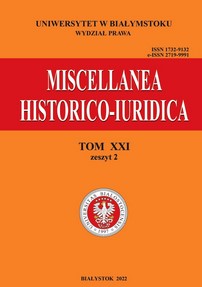Procreation in the Sephardic Jewish Communities of Istanbul, Salonica, and Izmir from 1500–1850
Procreation in the Sephardic Jewish Communities of Istanbul, Salonica, and Izmir from 1500–1850
Author(s): Leah Bornstein-MakovetskySubject(s): Social history, Modern Age, History of Judaism, Family and social welfare, The Ottoman Empire, Ethnic Minorities Studies
Published by: Wydawnictwo Uniwersytetu w Białymstoku
Keywords: procreation; Salonica; Istanbul; Izmir; fertility; Sephardim; oath of monogamy; polygyny; death; divorce; children; levirate marriage;
Summary/Abstract: The desire to raise a family with as many children as possible was a major aspiration of Jewish families in the Ottoman Empire for centuries. Many halakhic responses and other sources address this subject and its impact on Jewish families and society. This paper reviews how Sephardic Jewish society in the Ottoman cities of Istanbul, Izmir and Salonica (Thessaloniki) grappled with the reality of barren men and women – which was quite common – from 1500-1850, and how Jewish courts resolved cases that involved men’s requests to marry a second wife in order to fulfill the commandment of procreation. It discusses how the desire to procreate was realized through the institution of marriage, the undesirability of single life, the age at marriage, yibum (levirate marriage), women’s desire for children, the impact of kabbalah on fulfillment of the commandments, contraception, fertility treatments, the effect of child mortality on parents, and how the longing for children affected the private life of prominent individuals.
Journal: Miscellanea Historico-Iuridica
- Issue Year: 21/2022
- Issue No: 2
- Page Range: 37-61
- Page Count: 25
- Language: English

